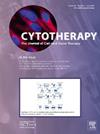从实验室到床边-正在进行的类器官和细胞治疗在欧洲的临床发展
IF 3.7
3区 医学
Q2 BIOTECHNOLOGY & APPLIED MICROBIOLOGY
引用次数: 0
摘要
背景,两个案例研究用于展示临床开发和在欧洲市场上转化为实践的路径。提出了两种产品开发,其特点是患者受益高。ATORM-C是一种基于类器官的治疗慢性炎症性肠病(IBD)的药物。根据ATMP法规,ATORM-C在欧洲被归类为组织工程产品(TEP)。ATORM-C的有效成分是体外培养的成体干细胞衍生的自体肠道类器官。干细胞生长成器官或组织的能力使ATORM-C能够通过组织再生发挥其治疗功效。在小、中、大型动物模型上研究了ATORM-C的治疗效果。首批患者是在韩国接受治疗的。目前慢性IBD的治疗策略旨在限制过度的免疫反应。然而,这种策略并不适合逆转导致疾病发展的细胞变化。计划在德国建立符合gmp的类器官生产。该产品的临床试验计划从2026年开始。目的是获得ATORM-C在欧洲的上市许可。结果MesemCart是一种治疗膝关节软骨损伤的ATMP。有效成分是来源于人脐带组织的间充质间质细胞(UC-MSC)。MesemCart用于同种异体使用。细胞悬浮液与胶原基质一起以确定的质量交付给外科医生。在膝关节关节镜检查时,将细胞负载基质应用于软骨损伤处,术中用纤维蛋白胶或缝合线固定。UC-MSC治疗的目的是调节炎症,缓解疼痛,防止进一步的损伤,以及再生透明软骨。MesemCart适用于以下适应症:根据国际软骨修复协会(ICRS)的症状性III/IV级软骨缺损,最大深度为3mm的骨软骨缺损,缺损大小为1至6平方厘米的局发性软骨缺损。在欧洲进行临床试验的申请已经提交。在I/II期临床试验中,将在55名患者中测试安全性作为主要终点,有效性作为次要终点。结论mesemcart将是欧洲首个基于UC-MSC的同种异体细胞治疗膝关节软骨损伤的药物。本文章由计算机程序翻译,如有差异,请以英文原文为准。
From Bench to Bedside – ongoing Clinical Development in Organoids and cell Therapy in Europe
Background & Aim
Two case studies are used to demonstrate the path of clinical development and translation into practice on the European market. Two product developments are presented that are characterised by high patient benefit.
ATORM-C is an organoid-based therapy for the treatment of chronic inflammatory bowel diseases (IBD). ATORM-C is classified in Europe as a Tissue Engineered Product (TEP) under the ATMP regulations. The active ingredient of ATORM-C is autologous intestinal organoids derived from adult stem cells cultured in vitro. The ability of stem cells to grow into the organ or tissue enables ATORM-C to develop its therapeutic efficacy through tissue regeneration. The therapeutic efficacy of ATORM-C has been investigated in small and medium to large animal models. The first patients were treated in South Korea.
Methodology
Current treatment strategies for chronic IBD are aimed at limiting the excessive immune response. However, this strategy is not suitable for reversing the cellular changes that underlie the development of the disease.
It is planned to establish GMP-compliant production of the organoids in Germany. Clinical testing of the product is planned from 2026. The aim is to obtain marketing authorisation for ATORM-C in Europe.
Results
The product MesemCart is an ATMP for the treatment of cartilage damage to the knee joint. The active ingredient is mesenchymal stromal cells derived from human umbilical cord tissue (UC-MSC). MesemCart is intended for allogeneic use. The cell suspension is delivered to the surgeon off the shelf in a defined quality together with a collagen matrix. The cell-laden matrix is applied to the cartilage damage and fixed with fibrin glue or sutures intraoperatively during arthroscopy of the knee joint. Treatment with the UC-MSC aims to modulate inflammation, relieve pain and prevent further damage as well as regenerate hyaline cartilage.
MesemCart is intended for the following indications: symptomatic grade III/IV cartilage defects according to the International Cartilage Repair Society (ICRS), osteochondral defects with a maximum depth of 3 mm, focal cartilage defects with a defect size of 1 to 6 sq cm. The application for a clinical trial in Europe has been submitted. In the Phase I/II clinical trial, safety as the primary endpoint and efficacy as the secondary endpoint will be tested in 55 patients.
Conclusion
MesemCart will be the first allogeneic cell therapy based on UC-MSC for the treatment of cartilage damage to the knee joint in Europe.
求助全文
通过发布文献求助,成功后即可免费获取论文全文。
去求助
来源期刊

Cytotherapy
医学-生物工程与应用微生物
CiteScore
6.30
自引率
4.40%
发文量
683
审稿时长
49 days
期刊介绍:
The journal brings readers the latest developments in the fast moving field of cellular therapy in man. This includes cell therapy for cancer, immune disorders, inherited diseases, tissue repair and regenerative medicine. The journal covers the science, translational development and treatment with variety of cell types including hematopoietic stem cells, immune cells (dendritic cells, NK, cells, T cells, antigen presenting cells) mesenchymal stromal cells, adipose cells, nerve, muscle, vascular and endothelial cells, and induced pluripotential stem cells. We also welcome manuscripts on subcellular derivatives such as exosomes. A specific focus is on translational research that brings cell therapy to the clinic. Cytotherapy publishes original papers, reviews, position papers editorials, commentaries and letters to the editor. We welcome "Protocols in Cytotherapy" bringing standard operating procedure for production specific cell types for clinical use within the reach of the readership.
 求助内容:
求助内容: 应助结果提醒方式:
应助结果提醒方式:


